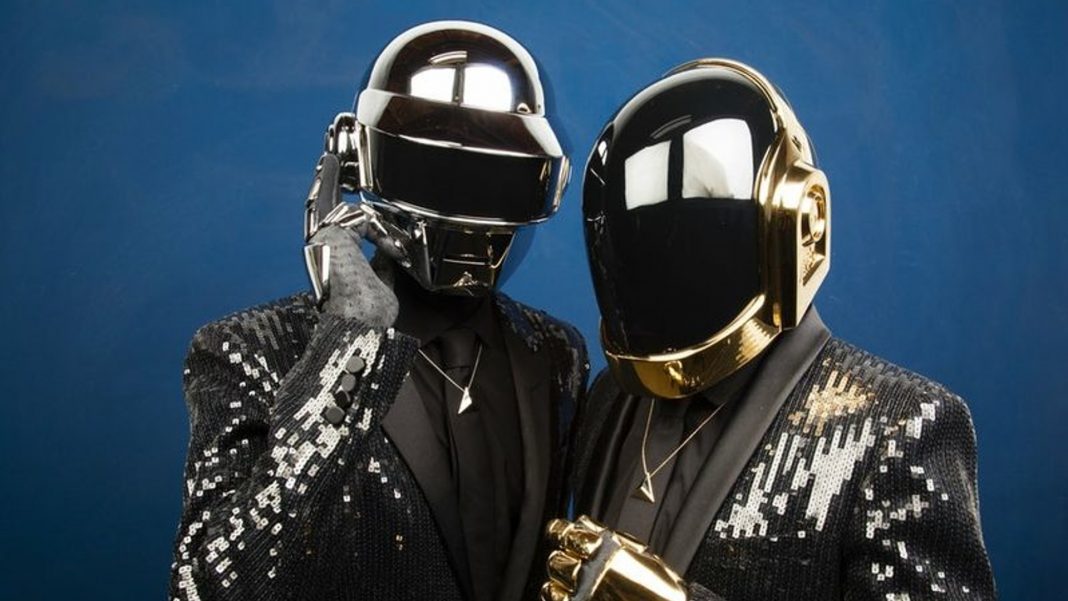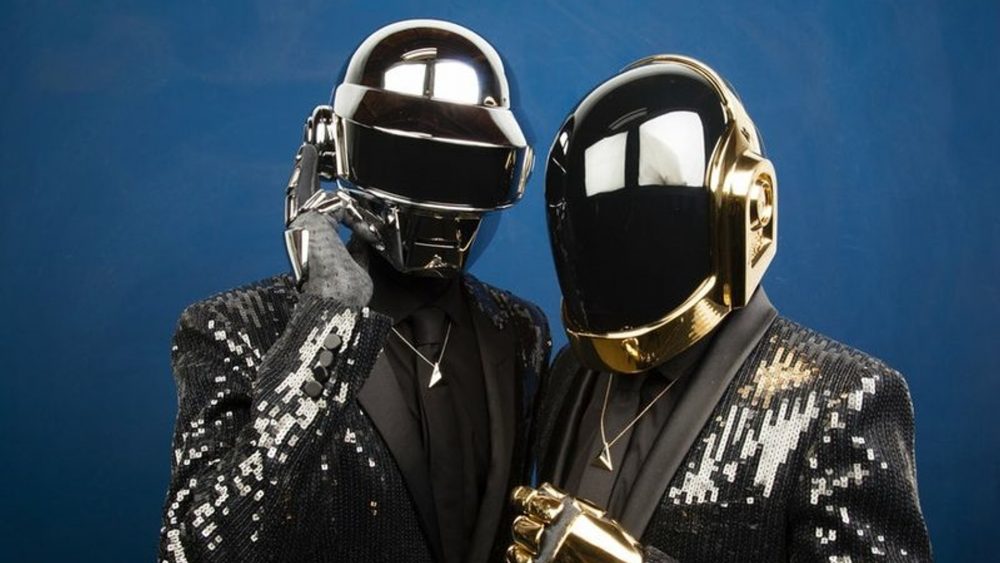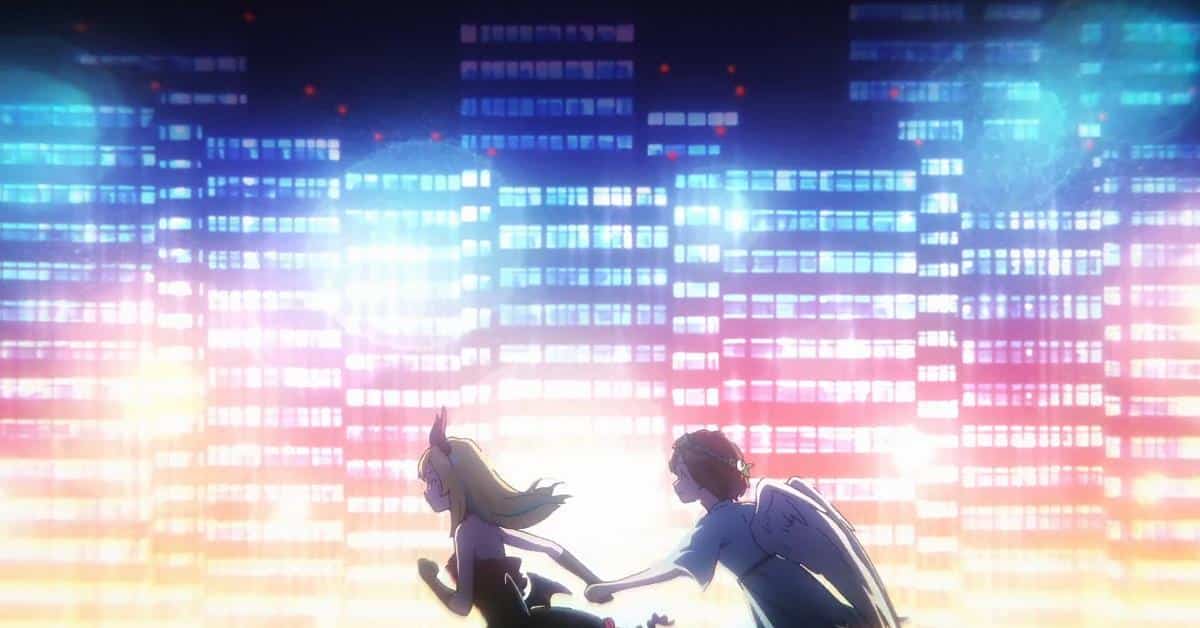The Beat’s Gregory Paul Silber has been accused of having a bit of an… obsessive personality. Each week in Silber Linings, he takes a humorous look at the weirdest, funniest, and most obscure bits of comics and pop culture that he can’t get out of his head.
I discovered (no pun intended) Daft Punk during the summer of 2001, when I was 10. I came home from day camp and turned on Cartoon Network for their “Toonami” block, the network’s anime showcase, hoping to catch Dragon Ball Z. I don’t remember if Goku defeated Frieza or whatever in that episode. What I do remember is being mesmerized by the “One More Time” music video.
It was such a weird thing to see and hear that it kind of made me uncomfortable. I expected commercials about toys and fast food, not five whole minutes of blue aliens on a space ship singing and dancing to house music, a genre I probably wouldn’t have even heard of until several years later. I don’t even recall there being any explanation for it. It’s not like Cartoon Network has ever been known for music videos. What on Earth was I watching?
Childish confusion aside, it was a great video and an even better song. 20 years later, it still evokes the sound of a utopian future. Perhaps someday, if humanity gets its act together, that could be us: joyful sci-fi humanoids of all ages dancing through the cosmos, free of war and hate and strife. I’ve been a Daft Punk fan ever since.
My love for the French electronic music duo of Guy-Manuel de Homem-Christo and Thomas Bangalter is a bit of an anomaly, because I’ve never been much into dance music. Hell, I’ve never been much of a dancer, period. If you ever catch me at a party and for some godforsaken reason I’ve been compelled to dance, it’s going to look almost exactly like Baron Zemo (Daniel Brühl) in that one episode of The Falcon and the Winter Soldier.
As much as my family loves talking about how much I danced at my aunt and uncle’s wedding as a toddler, I don’t remember a time when dancing didn’t make me feel extraordinarily awkward. It’s not just that I’ve never felt good at it, although that’s certainly part of it. To paraphrase an early-aughts meme, I can’t “dance like no one is watching.” I always feel watched, and judged. Dancing is an inherently silly thing to do and I can’t do it without feeling like onlookers think I’m being silly incorrectly.
Dancing always felt like something reserved for people much cooler and more confident than me, and so did dance music by extension. Growing up as EDM exploded in popularity, it never felt like a scene that would welcome me. It was for the popular kids with rich parents who knew where to get the right clothes and the right drugs. I was, and remain, more comfortable among the rock kids, where within the chaos of a mosh pit I at least knew how to participate in the raw emotional release.
Daft Punk seemed welcoming in a way that dance music as a whole never did. They didn’t look like guys I went to school with. They dressed like robots. They made songs about being robots. They were robots who danced and fell in love and partied and thought about what it meant to be an artificial life-form.
Of course, not every Daft Punk song is literally about being a robot, and there’s much more to Daft Punk than the robotic aesthetic. But the commitment to sci-fi themes was my way in.
I feel a little silly saying that, because I don’t want to make this a “boohoo, I’m such a geek” sort of thing. Geeks aren’t an oppressed class. I was bullied for a lot of things in my adolescence but liking sci-fi and whatnot wasn’t really one of them. That’s not what I’m talking about.
What I mean is, I liked Daft Punk because they seemed to have more interesting things on their minds than simply getting an audience to move. Dancing wasn’t just about having a good time, but a celebration of what the future holds. Maybe I was projecting my own narrative onto them, but I found a Pinocchio sensibility in them — they were robots who were given the gift of life, and they were committed to spending it expressing what a joy it is to have some semblance of humanity.
And by embracing their own oddity, they were embraced by cool people who are oddballs in their own way. People like Kanye West and The Weeknd and Stevie Wonder. Daft Punk is aspirational, in that way.
None of this is to say that Daft Punk is the only, or the first, act to play with the ideas they explored. It should certainly be acknowledged that their massive success owes a great deal to the artists they sampled, especially African-American musicians who, among many other things, invented house music in the first place. I’ve discovered many great songs by tracking down the origins of Daft Punk’s beats, and I plan on exploring that further to expand my musical horizons.
But you can’t plan or predict which artists will speak to you at which point in your life and why. I’ve talked before about how much I found myself relating to robots in my youth, and that often came from a dark place. “It didn’t feel as though my peers, or indeed, many of the adults in my life, saw me as a real person,” I wrote in a previous essay. “I was a robot put on this earth to amuse them.” Daft Punk, in turn, suggested that I could be a robot put on this earth to amuse myself. I’m here anyway, why not have a good time and start the robo-party?
The day after my 30th birthday this year, Daft Punk announced their breakup. It was disappointing, but not surprising. 28 years is a long time to dress like robots and make disco. Mostly, I was upset that I never got to see them perform live. I’m sure I would’ve danced.








